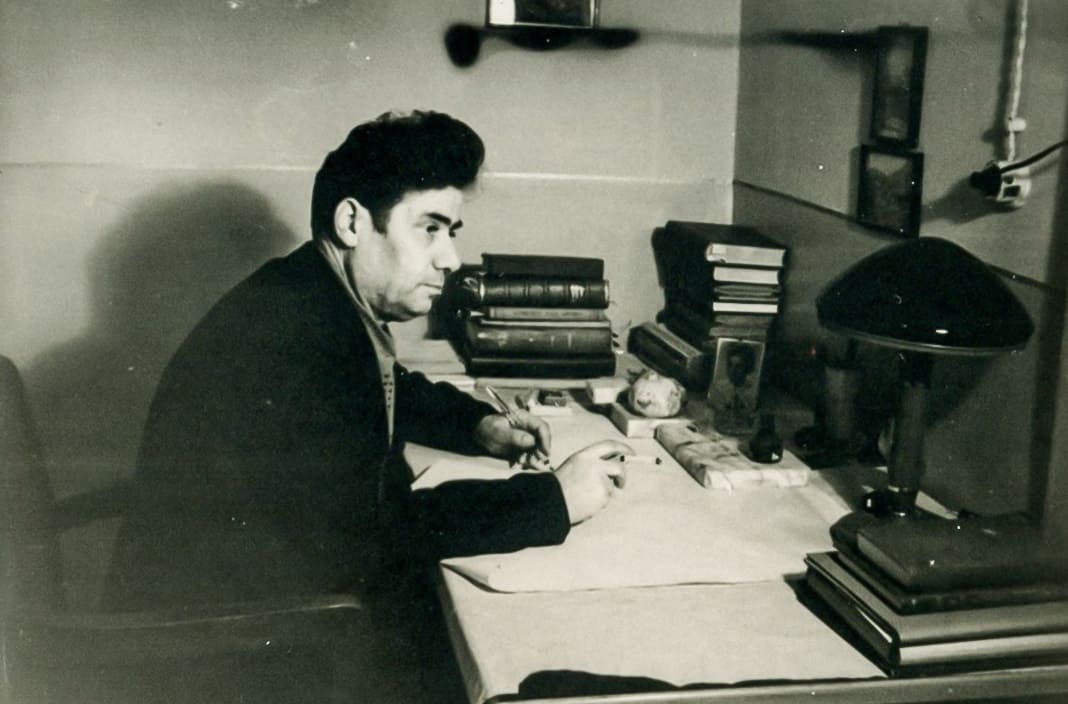Many survivors of the heroic self-defense of Van became writers in their own right and brought their contribution to Soviet Armenian literature. Among these names of greater or lesser importance, Mekertich Kheranian became noted as the author of the first version of the Narek in Eastern Armenian.
Kheranian was born in Van on August 10, 1899. The future writer received his initial education in the parish school of Van and later in the seminary of Varak and the Central Haigazian School. After the self-defense of Van, he moved to Eastern Armenia with his family and graduated from the Kevorkian Seminary of Holy Echmiadzin. He married Araxia Kheranian, who coincidentally had his same surname, and they had four children. The family lived in Echmiadzin (nowadays Vagharshapat) until 1932 and then moved to Yerevan.
Mekertich Kheranian was a teacher of Armenian language and literature in the district of Echmiadzin and in various high schools of Yerevan. Since a law resulting from Soviet atheism prevented a teacher from keeping a clergyman in his family, his father was forced to leave the Church and become a layman to be able to live with his own son.
Mekertich Kheranian started to write poetry in his youth and dedicated his life to literature. He published his first collection of poetry, “Joy,” in 1938, and the following year he was admitted to the Writers Union of Armenia. This, however, did not shield him from Stalinism and its evils. In 1941, at a time when intellectuals were arrested as suspects, Kheranian was jailed in November 1941 and exiled to the region of Akmolinski, in Kazakhstan, without a trial. After spending four years of harshness there, he was released after the end of World War II and returned to Yerevan, where he continued teaching until 1950.
He published many volumes of poetry, children poetry and tales, poems, novellas, and the autobiographical novel “A Long, Long Road” (1965). He was a prolific translator who rendered into Modern Armenian Homer’s “Iliad” and also translated from Russian works by Nizami, Pushkin, Lermontov, and many others. His most well-known translation is the Modern Armenian version of Gregory of Narek’s “Book of Lamentations” (1960), which was the first such version in Eastern Armenian.
His son Henrik has given an interesting testimony about his father: “In his last years, his longing for his homeland, Van, was very big. He did not take the pen in the last two years of his life and dealt exclusively with his childhood memories. We lived in the Aivazovsky Street of the neighborhood of Butania, and he built Lake Van in the same shape of the map from cement, with his own hands. He painted the three meters of construction in blue, filled it with water and felt that he was in Van, on the shore of Lake Van. Besides, without using any other tool except for his knife, he prepared the model of their home in Van, the village of Shushants with its surroundings and the monastery of Varak, where he had studied. He pointed out to it with his finger and said: ‘My seat was near this window.’ He devoted two years to his homeland, he surrounded himself with familiar places of Van, and finished his life in 1970.”
Mekertich Kheranian passed away on June 27, 1970. Many of his unpublished and published works appeared after his death. In 2010, the National Library of Armenia bestowed upon Kheranian, posthumously, the medal of Hakob Meghapart for his services to Armenian literature and translation.

